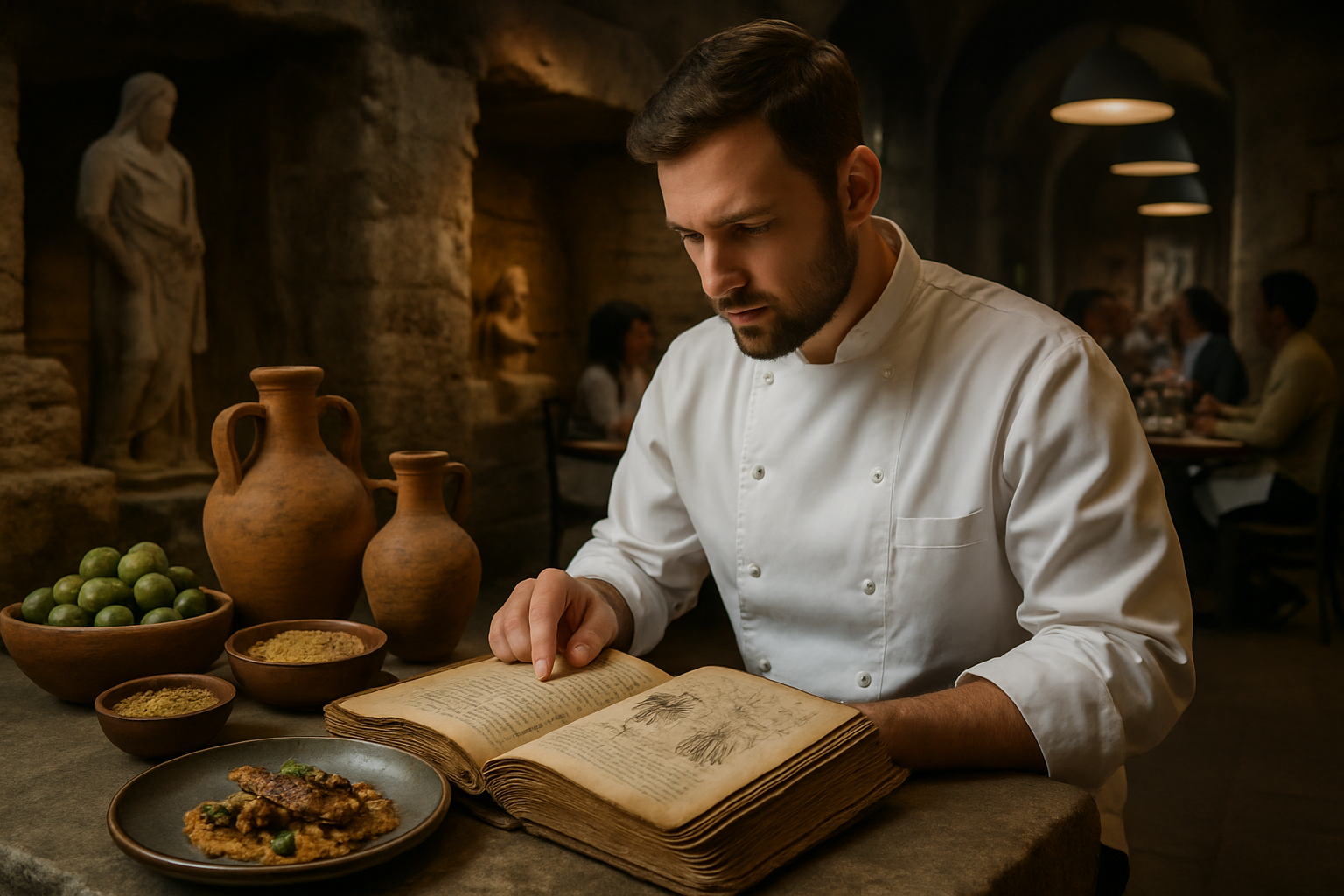Culinary Time Travel: Exploring Ancient Cuisines in Modern Kitchens
The fusion of history and gastronomy has given rise to a captivating trend in the world of travel and culinary exploration. Adventurous food enthusiasts are now embarking on journeys through time, not with a traditional time machine, but with their taste buds. This emerging trend of culinary time travel allows modern-day epicureans to experience the flavors of ancient civilizations, bringing long-forgotten recipes back to life in contemporary kitchens and restaurants around the globe.

This interdisciplinary approach has led to groundbreaking discoveries about the eating habits of ancient civilizations, from the Mayans and Aztecs to the Romans and Egyptians. As a result, travelers can now embark on gastronomic adventures that transport them through millennia of culinary evolution.
Unearthing Ancient Flavors
One of the most fascinating aspects of culinary time travel is the rediscovery of ingredients that have long fallen out of favor or were thought to be extinct. Archaeobotanists and food historians have been instrumental in identifying and reviving these forgotten flavors.
For instance, the revival of ancient grains like einkorn, emmer, and spelt has not only expanded our culinary repertoire but also provided insights into the agricultural practices of our ancestors. These grains, often more nutritious and flavorful than their modern counterparts, are now finding their way into artisanal breads and innovative dishes in restaurants specializing in historical cuisine.
From Archaeological Sites to Modern Plates
The journey from ancient recipe to modern plate is a complex process that involves meticulous research and creative interpretation. Chefs specializing in historical gastronomy often collaborate with archaeologists and historians to ensure the authenticity of their recreations.
In some cases, the process involves analyzing residues found in ancient cooking vessels or studying frescoes and mosaics depicting banquet scenes. These clues, combined with written records and an understanding of available ingredients, allow culinary experts to piece together the flavors and techniques of the past.
The Rise of Historical Gastronomy Tourism
As interest in culinary time travel grows, a new niche in the tourism industry has emerged. Historical gastronomy tours now offer travelers the opportunity to taste their way through history, experiencing the flavors of different eras and civilizations.
These tours often combine visits to archaeological sites with hands-on cooking classes and themed dinners. Imagine savoring a meal fit for a Roman emperor while overlooking the ruins of Pompeii, or learning to prepare Aztec chocolate using traditional methods in the heart of Mexico City.
Challenges and Controversies
While culinary time travel offers exciting possibilities for both chefs and travelers, it’s not without its challenges and controversies. The interpretation of ancient recipes often requires a degree of speculation, and some purists argue that true authenticity is impossible to achieve given the vast differences in ingredients and cooking methods between then and now.
Additionally, there are ethical considerations to be addressed, particularly when it comes to recreating dishes that may have had ritualistic or sacred significance in their original context. Balancing historical accuracy with modern sensibilities and dietary restrictions is an ongoing challenge for those in the field.
Embarking on Your Own Culinary Time Travel Adventure
-
Research historical cookbooks and food-related texts from your desired era or civilization
-
Seek out restaurants specializing in historical gastronomy in your travel destinations
-
Participate in archaeological cooking workshops offered at some historical sites
-
Explore local markets for heirloom varieties of fruits, vegetables, and grains
-
Attend food history lectures or symposiums to deepen your understanding of culinary evolution
As we continue to unearth the culinary secrets of our ancestors, culinary time travel offers a unique and immersive way to connect with the past. By tasting the flavors that shaped civilizations, we gain a deeper appreciation for the role of food in human history and culture. Whether you’re a history buff, a food enthusiast, or simply an adventurous traveler, exploring ancient cuisines in modern kitchens promises a journey that will tantalize your taste buds and expand your culinary horizons.






